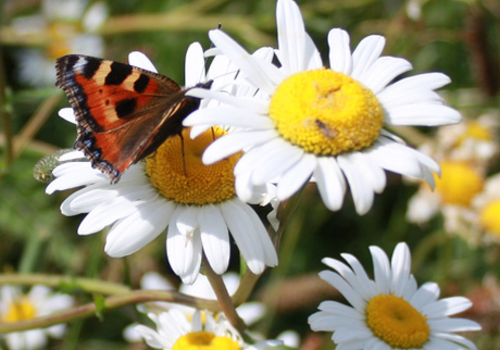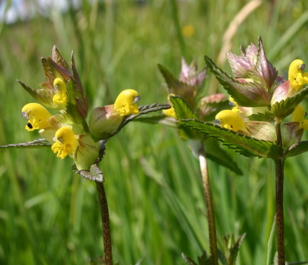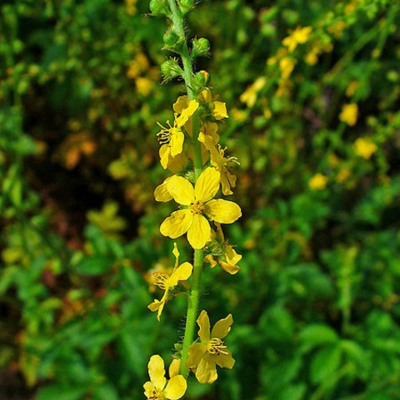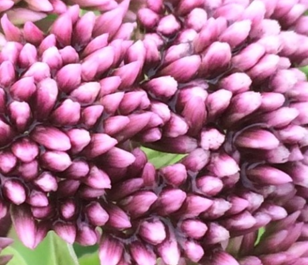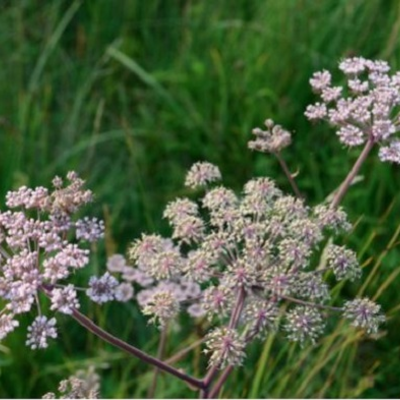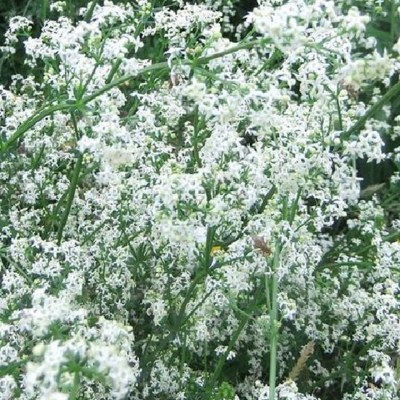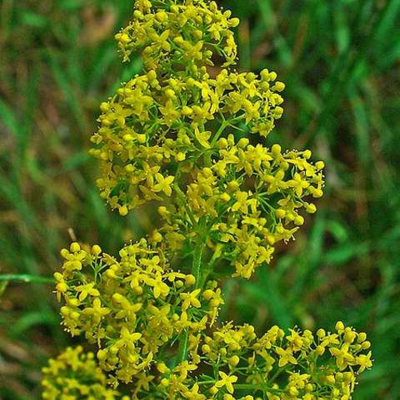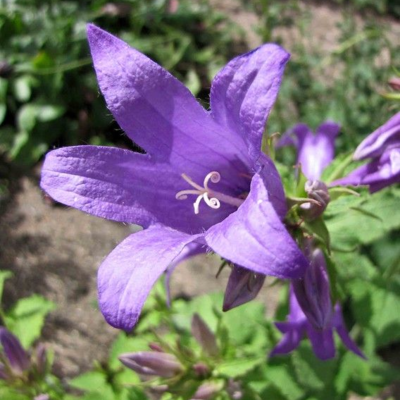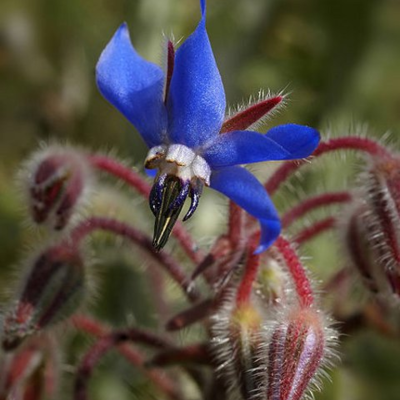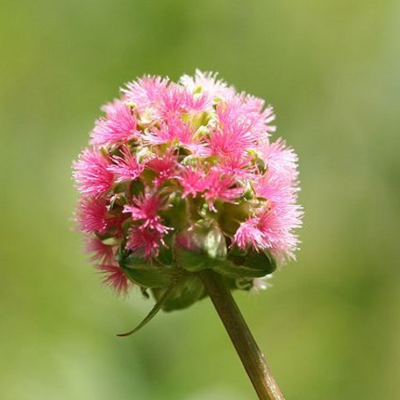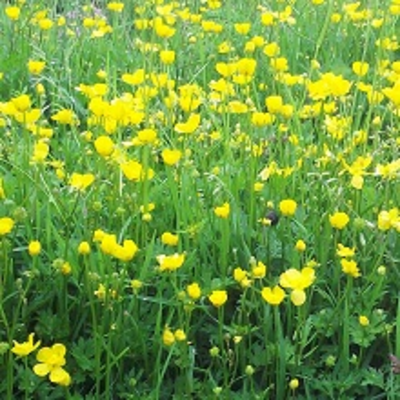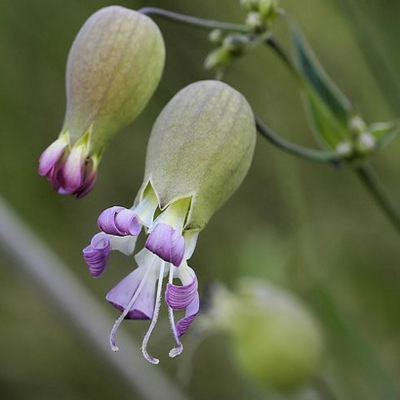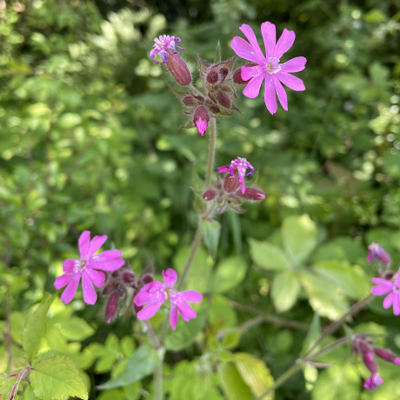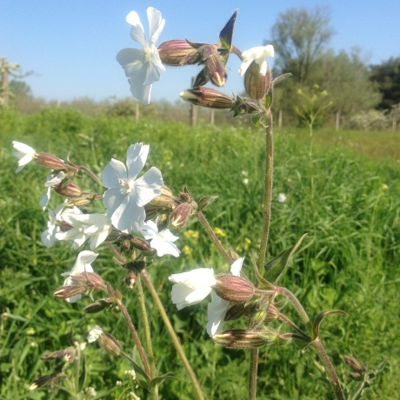Wildflower Plants A to Z
Choose from our entire range of over 100 wildflower plug plants, expertly grown in our very own nursery from high quality, UK native wildflower seed. Our wildflower plugs are ready to be planted straight out into your garden or meadow as soon as they arrive, all year round. Buying individual wildflower plants is one of the best ways to establish your chosen wildflower species, planted individually or as part of a more diverse meadow created from our range of wildflower seeds.
Don't hesitate to get in touch to speak to one of our experts or request a catalogue to view our full range. Ordering regularly or looking for large volumes? Click here to apply for a trade account today - we review all applications within one working day.

Plants for Pollinators highlights plants selected by the RHS as scientifically proven to tackle the declines in bees, butterflies and other pollinators.
Designed specifically to produce yellow rattle plants easily and quickly. Grown from our own quality-assured, fresh, UK native seed, our yellow rattle plugs are ready to be planted in your garden or meadow immediately upon on arrival in April.
Yellow rattle is a surprisingly musical meadow flower and a must for a wildflower garden: as a semi-parasitic plant, it requires robust neighbour plants like grasses and legumes, but also acts as a watchdog against vigorous weeds.. That's on top of the beauty of its golden, bell-shaped flowers, complete with a charming 'chime' as its ripened seed pods rattle in the breeze.
Our yellow rattle plug plants are grown from high-quality, British seed from wild meadow collections, and arrive ready to be planted complete with the essential meadow grasses.
- Type: Annual
- Height: 20–50cm.
- Flowers: May-September
- Soil Requirement: Moist or well-drained
- Light Requirement: Full sun
- Natural Habitat: Grassland, meadows
- Also known as: Corn Rattle, Hay Rattle, Penny Grass

Plants for Pollinators highlights plants selected by the RHS as scientifically proven to tackle the declines in bees, butterflies and other pollinators.
Common Agrimony is an attractive, medium height meadow plant, consising of tall spires of star-shaped, sunny yellow flowers. An wildlife-friendly flower, it's attractive to pollinators as well as wild birds.
- Type: Perennial
- Height: 40-80cm
- Flowers: June to September
- Soil requirement: Neutral, well-drained
- Light requirement: Full sun or partial shade
- Natural habitat: Southern UK, grassland, meadows, roadsides
- Also known as: Church Steeples, Sticklewort, Aaron's Rod, Clot-Bur, Fairy's Wand, Money-In-Both-Pockets, Salt-And-Pepper, Sweethearts
A tall-growing upright marsh flower, which grows plentiful parachutes of pink-and-white florets on red stems, and they’re also known for their pleasant perfume when cut. This whimsically-coloured wildflower is also perfect for pollinators!
- Type: Perennial
- Height: 60–120cm.
- Flowers: July-September
- Soil Requirement: Damp
- Light Requirement: Full sun or partial shade
- Natural Habitat: Marshlands, river banks
- Also known as: Hemlock Parsley, Holy Rope, Raspberries-And-Cream, Water Agrimony

Plants for Pollinators highlights plants selected by the RHS as scientifically proven to tackle the declines in bees, butterflies and other pollinators.
Wild Angelica is a marshy wildflower boasting boisterous, tall-growing branches that are hairless and often tinted purple. Likewise, her bubbly bursts of bright white florets are often tinted with tiny pink spikes. The Wild Angelica was also once treasured as a decoration for cakes and confectionaries.
- Type: Perennial or biennial
- Height: 150–250cm.
- Flowers: July-September
- Soil Requirement: Moist but well-drained
- Light Requirement: Full sun
- Natural Habitat: Damp meadows, wet woodlands, fenland
- Also known as: Garden Angelica, Wild Celery
This item is currently unavailable
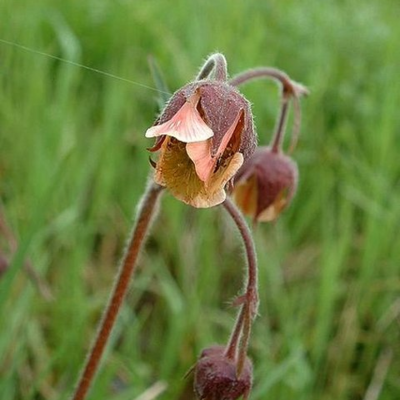

Plants for Pollinators highlights plants selected by the RHS as scientifically proven to tackle the declines in bees, butterflies and other pollinators.
Though it prefers cool spots in the garden, the Water Avens are warmly-hued wildflowers, with gently nodding, burgundy stems and sepals- gorgeous enough on their own, but blooming into cups of peach-coloured petals that make the perfect addition to a pond-side palette!
- Type: Perennial
- Height: 30–45cm.
- Flowers: April-June
- Soil Requirement: Damp
- Light Requirement: Full sun to shade
- Natural Habitat: Coasts, woodlands, damp meadows
- Also known as: Chocolate Root, Indian Chocolate, Purple Avens
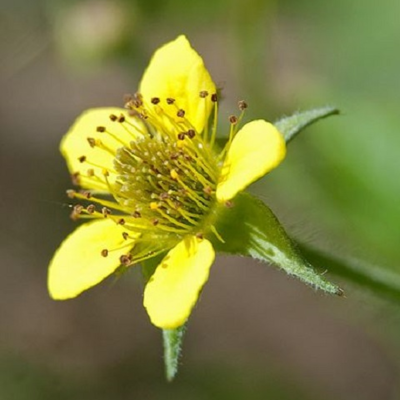

Plants for Pollinators highlights plants selected by the RHS as scientifically proven to tackle the declines in bees, butterflies and other pollinators.
Once named a 'blessed herb' for its uses in herbalism, this hardy, leafy plant can still bless your garden with small, star-shaped, buttery yellow blooms which add some extra brightness to a shady spot- as well as sweetness, as they're nectar-rich and ideal for pollinators.
- Type: Perennial
- Height: 30-60cm.
- Flowers: May-August
- Soil Requirement: Well-drained
- Light Requirement: Partial Shade
- Natural Habitat: Woods, hedgerows, roadsides
- Also known as: Herb Bennett, Colewort, St. Benedict's Herb, Blessed Herb
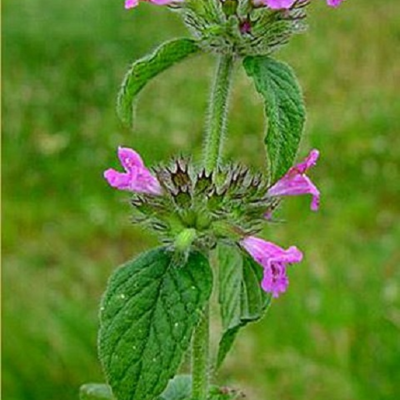

Plants for Pollinators highlights plants selected by the RHS as scientifically proven to tackle the declines in bees, butterflies and other pollinators.
Best known for their distinctly-shaped and aromatic leaves, the basil plant has a lot to provide inside the garden and out, as it produces whorls of royal purple and pink petals which are perfect for pollinators.
- Type: Perennial
- Height: 30-60cm.
- Flowers: July-September
- Soil Requirement: Well-drained, calcareous
- Light Requirement: Full Sunlight
- Natural Habitat: Dry meadows, forests, hedgerows
- Also known as: Cushion Calamint

Plants for Pollinators highlights plants selected by the RHS as scientifically proven to tackle the declines in bees, butterflies and other pollinators.
A rambling, hairless hedge plant, which produces clusters of tiny, star-shaped flowers in fresh white. Noted for its sweet scent, this vigorous wildflower can grow quite tall when clambering alongside hedges and shrubs.
- Type: Perennial
- Height: 30–75cm.
- Flowers: July-August
- Soil Requirement: Well-drained, calcarerous
- Light Requirement: Partial shade
- Natural Habitat: Woodlands, grasslands, hedgebanks
- Also known as: False Baby’s Breath, Whip Tongue, Wild Madder

Plants for Pollinators highlights plants selected by the RHS as scientifically proven to tackle the declines in bees, butterflies and other pollinators.
The Lady’s Bedstraw is a hardy, sprawing plant which bears vast whorls and clusters of tiny golden flowers. It also boasts a distinct and sweet scent, even when dried: its unusual name originates from its use to scent bedding in Victorian times.
- Type: Perennial
- Height: 15-30cm.
- Flowers: June-September
- Soil Requirement: Well-drained
- Light Requirement: Full sun or partial shade
- Natural Habitat: Grassy meadows, road verges, clifftops and hills
- Also known as: Maiden’s Hair, Fenwort, Cheese Rennet
This item is currently unavailable
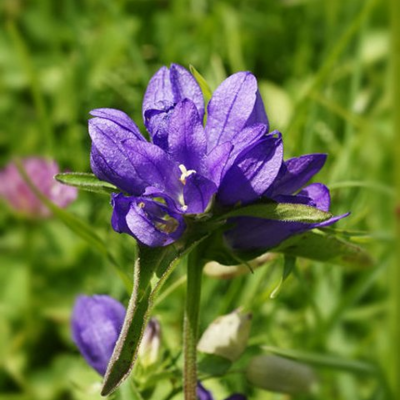

Plants for Pollinators highlights plants selected by the RHS as scientifically proven to tackle the declines in bees, butterflies and other pollinators.
As its name suggests, the Clustered Bellflower sprouts dense bursts of vivid violet-blue flowers. Each flower is its own brilliant bouquet, on top of being hardy and attractive to bees and butterflies!
- Type: Perennial
- Height: 30–75cm.
- Flowers: June-September
- Soil Requirement: Well-drained, chalky
- Light Requirement: Partial shade
- Natural Habitat: Grasslands, coastal cliffs
- Also known as: Dane’s Blood
This large species of bellflower produces petals in purple and periwinkle blue. Ideal for woodland gardens and lighting up shady spots, it’s hardy and easy to naturalise!
- Type: Perennial
- Height: 90–150cm.
- Flowers: June-September
- Soil Requirement: Well-drained
- Light Requirement: Partial to full shade
- Natural Habitat: Woodlands, hedge banks
- Also known as: Brantwood, Large Campanula
This item is currently unavailable
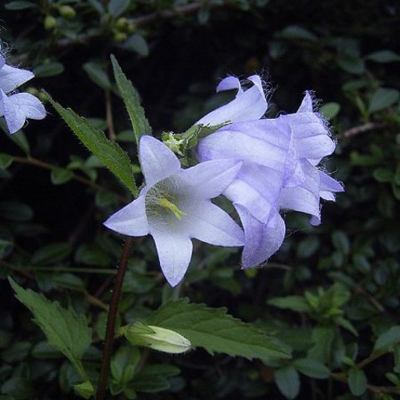

Plants for Pollinators highlights plants selected by the RHS as scientifically proven to tackle the declines in bees, butterflies and other pollinators.
Though named for its nettle-like leaves, one mustn’t overlook the beauty of this bloom’s bells of pale, bluish-purple petals. Best planted in a dry, shady spot.
- Type: Perennial
- Height: 50–100cm.
- Flowers: June-September
- Soil Requirement: Well-drained
- Light Requirement: Full sun or partial shade
- Natural Habitat: Woodlands, hedgebanks
- Also known as: Blue Devils, Gloves Of Mary, Throatwort
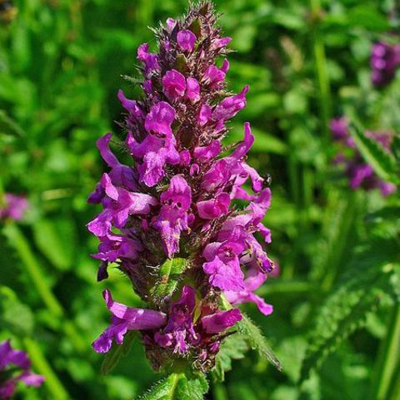

Plants for Pollinators highlights plants selected by the RHS as scientifically proven to tackle the declines in bees, butterflies and other pollinators.
Betony flowers bloom in spikes of rich wine red and purple, alongside distinct and attractive foliage. Its flowers are also known to attract bees and butterflies and they used to be planted in churchyards for spiritual protection. They grow well in any light, with an affinity for damp soil.
- Type: Perennial
- Height: 30-60cm.
- Flowers: June-August
- Soil Requirement: Moist but well-drained
- Light Requirement: Full sun or partial shade
- Natural Habitat: Grassy meadows, river banks
- Also known as: Bishops’s Wort, Wood Betony, Common Hedgenettle
This item is currently unavailable
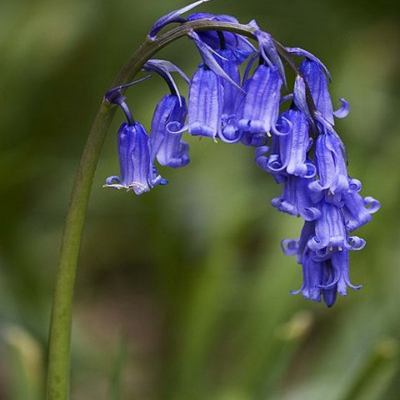

Plants for Pollinators highlights plants selected by the RHS as scientifically proven to tackle the declines in bees, butterflies and other pollinators.
What else is there to say about the dainty azure arcs of the beloved Bluebell? Though they take several years to develop from seed, fully grown bluebells naturalise quickly and can multiply over time, leaving your garden awash and aglow with the famous fairy-tale flora! In addition, Bluebells can rarely grow in pink and white.
- Type: Perennial
- Height: 30–60cm.
- Flowers: April-June
- Soil Requirement: Well-drained
- Light Requirement: Partial shade
- Natural Habitat: Woodlands, hedge banks
- Also known as: Bell Bottle, Cuckoo’s Boots, Witch’s Thimbles
This item is currently unavailable

Plants for Pollinators highlights plants selected by the RHS as scientifically proven to tackle the declines in bees, butterflies and other pollinators.
Spice up your garden with the quirky colours of the Borage. Its brilliant blue, star-shaped flowers and hairy, scarlet stems are attractive to pollinators and easy to grow with minimal fuss.
- Type: Annual
- Height: 30-60cm.
- Flowers: June-September
- Soil Requirement: Well-drained
- Light Requirement: Full sun or partial shade
- Natural Habitat: Forest verges, meadows
- Also known as: Starflower Cool Tankard, Tailwort
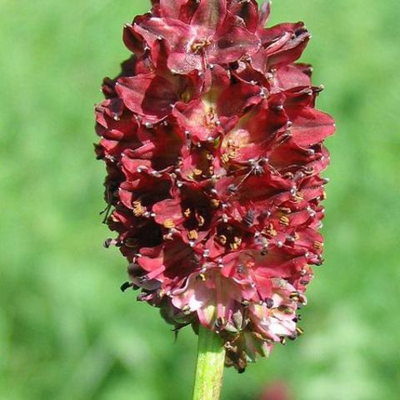

Plants for Pollinators highlights plants selected by the RHS as scientifically proven to tackle the declines in bees, butterflies and other pollinators.
The Great Burnet is a lively-looking plant, sporting crimson flower clusters atop tall, branching stems with distinct jagged leaves. They’re highly attractive to pollinators, and for a good reason; this wild-growing relative of the rose is not to be overlooked!
- Type: Perennial
- Height: 45-90cm.
- Flowers: June-September
- Soil Requirement: Moist but well-drained
- Light Requirement: Full sun or partial shade
- Natural Habitat: Floodplains, meadows, riverbanks
- Also known as: Burnet Bloodwort
This item is currently unavailable

Plants for Pollinators highlights plants selected by the RHS as scientifically proven to tackle the declines in bees, butterflies and other pollinators.
A smaller species of burnet with miniature, round red flowers growing in clusters, as well as edible toothed leaves which are pleasantly scented when crushed.
- Type: Perennial
- Height: 20-50cm.
- Flowers: May-August
- Soil Requirement: Well-drained
- Light Requirement: Full sun
- Natural Habitat: Chalky grasslands
- Also known as: Garden Burnet, Pimpernelle, Toper’s Plant
This item is currently unavailable
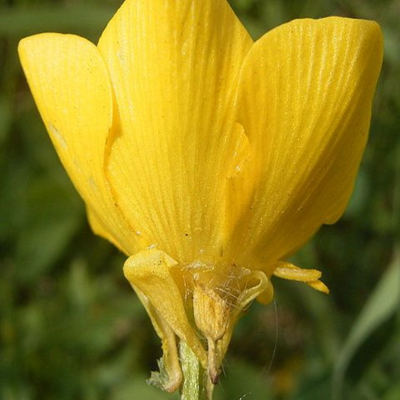

Plants for Pollinators highlights plants selected by the RHS as scientifically proven to tackle the declines in bees, butterflies and other pollinators.
So-named for their swollen underground stem, the bulbous buttercup is a more widespread variant of the iconic glossy-yellow springtime wildflower. Thrives in acidic soil, with good sunlight to best bring out its golden glow.
- Type: Perennial
- Height: 30–45cm.
- Flowers: March-June
- Soil Requirement: Well-drained
- Light Requirement: Full sun
- Natural Habitat: Meadows, grasslands, road verges
- Also known as: Frogs-Foot, Goldcup
This item is currently unavailable
The Creeping Buttercup has classic charm, with glossy yellow, five-petalled flowers on short stems covered with fine hairs. A natural attractant for pollinators, and it adds a wonderful golden glow to lawns, paths, and spots with loamy soil.
- Type: Perennial
- Height: 20-50cm.
- Flowers: May-September
- Soil Requirement: Moist
- Light Requirement: Full sun or partial shade
- Natural Habitat: Damp grasslands, gardens, pastures
- Also known as: Lantern Leaves, Ram's Claws, Sit-Fast
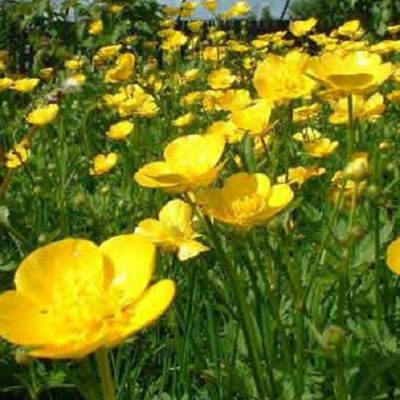

Plants for Pollinators highlights plants selected by the RHS as scientifically proven to tackle the declines in bees, butterflies and other pollinators.
The Meadow Buttercup is the tallest-growing of the buttercups, with a slight preference for damper ground. These bright and buttery, bowl-shaped blooms make an amazing addition to meadows!
- Type: Perennial
- Height: 30–90cm.
- Flowers: May-September
- Soil Requirement: Moist but well-drained
- Light Requirement: Full sun or partial shade
- Natural Habitat: Meadows, grasslands, road verges
- Also known as: Butter Daisy, Goldweed, Meadow Cup

Plants for Pollinators highlights plants selected by the RHS as scientifically proven to tackle the declines in bees, butterflies and other pollinators.
An unusual yet distinct variant of campion, which has grey-tinted foliage and grows drooping, fresh white bladders veined with purple, and five-petalled flowers. A plant with a subtle, withdrawn beauty that also attracts bees and butterflies.
- Type: Perennial
- Height: 20–60cm.
- Flowers: June-August
- Soil Requirement: Well-drained
- Light Requirement: Full sun
- Natural Habitat: Meadows, open forests, hedgerows
- Also known as: Cowbell, Maiden’s Tears

Plants for Pollinators highlights plants selected by the RHS as scientifically proven to tackle the declines in bees, butterflies and other pollinators.
In spite of its name, the Red Campion boasts eye-catching fuschia petals, though planted with White Campion, they may produce precious, pastel-pink hybrids. Regardless, they make a welcome splash of colour in a shady spot, and they’re highly attractive to bees!
- Type: Perennial
- Height: 30-60cm.
- Flowers: April-September
- Soil Requirement: Well-drained
- Light Requirement: Partial Shade
- Natural Habitat: Hedgerows, woodlands
- Also known as: Hare’s Eye, Ragged Jack, Adder’s Flower
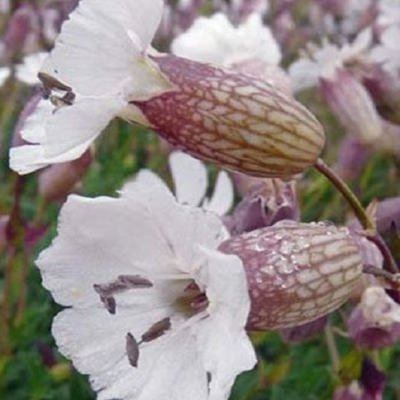

Plants for Pollinators highlights plants selected by the RHS as scientifically proven to tackle the declines in bees, butterflies and other pollinators.
A coastal campion. Grows a bladder-like calyx coloured in coral, ending in bubbly white flowers which look brilliant washing over a rockery like sea foam.
- Type: Perennial
- Height: 15–30cm.
- Flowers: June-August
- Soil Requirement: Well-drained, sandy
- Light Requirement: Full sun or partial shade
- Natural Habitat: Coastal areas, cliffs
- Also known as: Sea Pink, Seaside Catchfly

Plants for Pollinators highlights plants selected by the RHS as scientifically proven to tackle the declines in bees, butterflies and other pollinators.
This pristine white, five petalled perennial is also well known for producing a clovey scent at dusk, not only making it perfect for pollinators, but also making for a lovely plant indoors.
- Type: Perennial
- Height: 30-60cm.
- Flowers: May-October
- Soil Requirement: Well-drained
- Light Requirement: Partial Shade
- Natural Habitat: Roadside verges, hedgerows
- Also known as: Bull Rattle, White Cockle, White Robin
Choosing different wildflower plants by species gives you complete control over when you plant them, where you plant them and what the end result will be. And buying wildflower plug plants instead of seeds, means that you don't have to wait for them to germinate - perfect if speed is of the essence!
The full range of over 100 British wildflower plants species from Boston Seeds is available to buy online in trays of 25, 150 and 500 plug plants and all are available with nationwide delivery.
Want to learn more about the likes and dislikes of your favourite wildflower plants? Our handy wildflower species quide will tell you all you need to know - yours to download and keep for FREE.
Buy With Confidence

